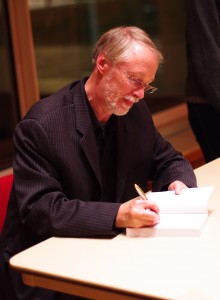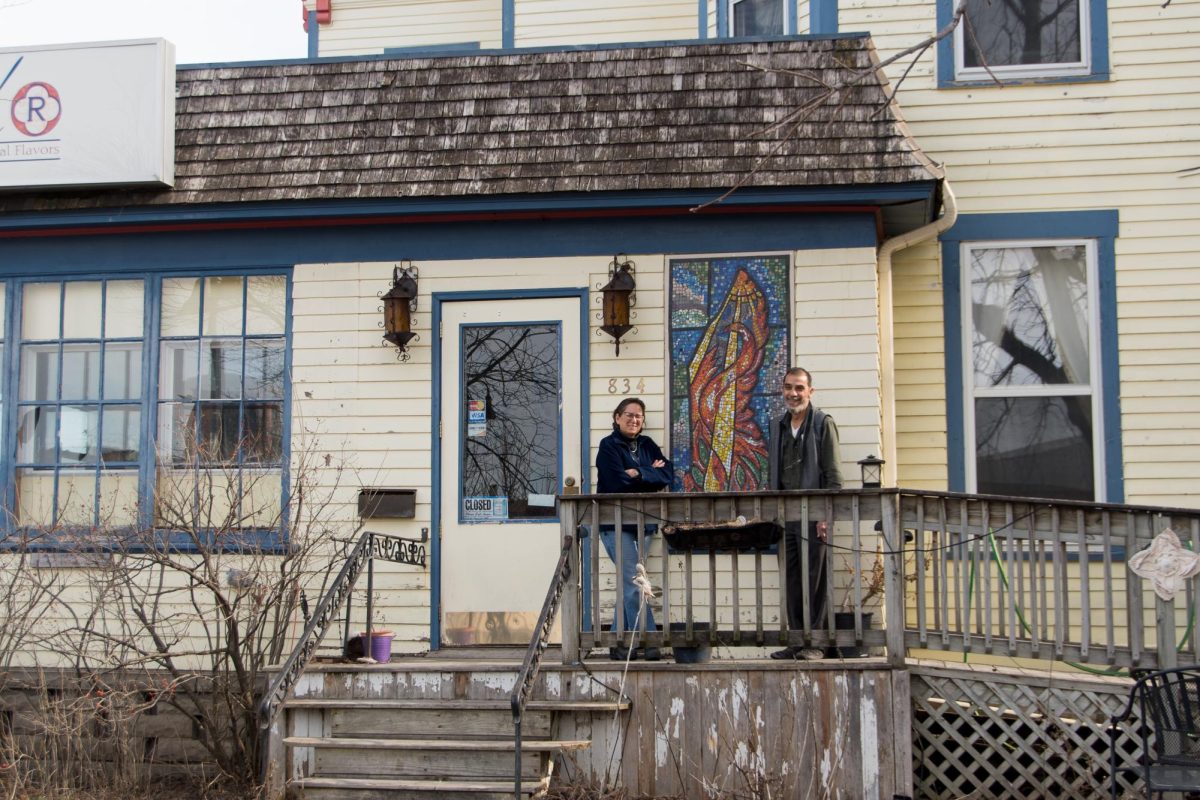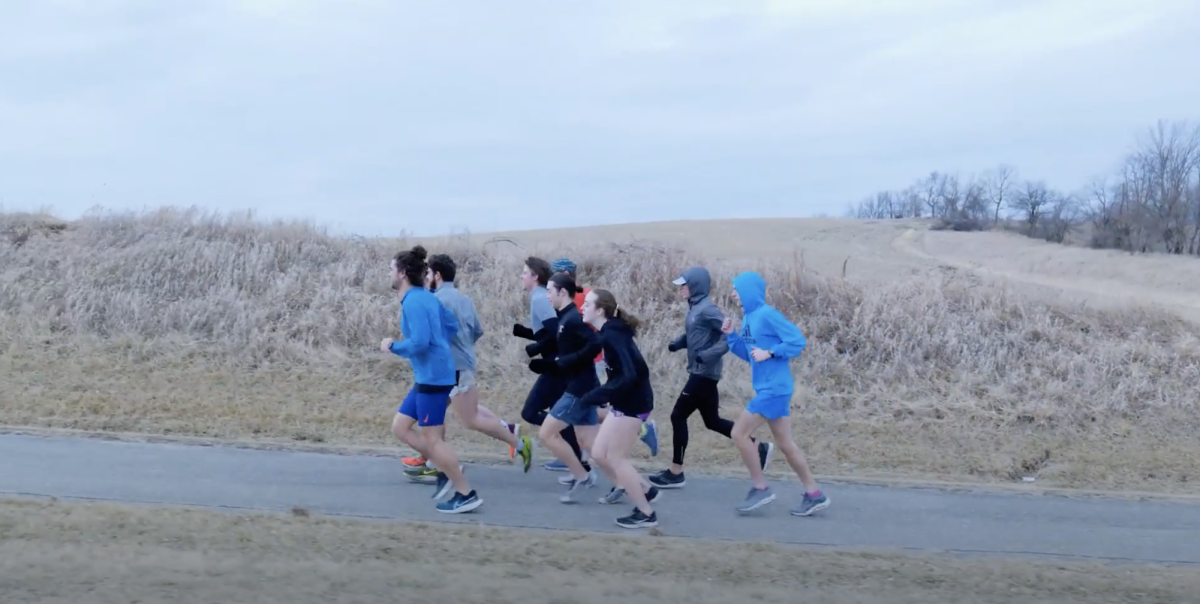Charles Baxter, in Dean Bakopoulos’ words, is “one of the nation’s great novelists and critics, and perhaps the wisest, kindest, most helpful creative writing teacher in the world.” Baxter gave a reading Thursday as part of the Writers@Grinnell program. He met with the S&B to answer questions about life and literature.

What will you be reading and talking about tonight [Thursday]?
Probably a new story called “Loyalty,” which has a first-person, loud-mouthed narrator, which is not like my usual stuff and is kind of a second version of a story I wrote 20 years ago which appears in Griffin called “Floodshow.” I’m going to talk to the audience about why I went back to that situation and ended up writing another version of it.
And why is that?
I saved the first draft of the first six pages, and then I gave up on that approach and tried the story using a different approach, a third-person, much quieter sound to the narrator. I made him more thoughtful, more of a daydreamer, and 20 years later I looked at these pages that I had not used and I thought, “The breath of life is still in this. I should see if I can not keep on with this narrator.” The situation is that he has an ex-wife, he’s raised a son who is the child of the ex-wife, who left him and left her son, sort of a runaway mom, and now 16 years later she has come back, she’s a bag lady, and she needs help. I thought, well, the situation still seems to have some energy in it, I’ll see if I can do it.
What is your writing process like? Do you often go back and look at old stories?
No, I think this is the only time I’ve ever done it. I usually think for a long time about a story before I write it. I used to take notes that I would then subsequently use. Now, I just try to daydream my way through it and when I think I have enough stored up, then I sit down and I start writing.
As a published author, what advice would you give to aspiring college student writers?
Read everything that you can get your hands on. If you fall in love with a book, get your hands on as many books by that author as you can, and then slowly but surely see if you can imitate the things that you like in that author’s work. Travel as much as you can, see as much of the world as you can. Try to make yourself uncomfortable in places, doing things you wouldn’t have expected doing, just so you build up some sense of different kinds of people, how they look, what they do, so that you’re not repeating yourself or just writing about yourself all the time…Just loving literature and wanting to be part of that project, that’s the main thing. And don’t quit—be stubborn.
You were Dean Bakopoulos’ professor. Could you tell me a little bit about that?
I should be careful what I say… He was a wonderful student. I don’t remember how long ago it was. It was at University of Michigan and Dean was an undergraduate there…He was part of a group of very talented students whom I taught in an undergraduate workshop…My memory of it is that he was working on stories about working class people in what everyone around Detroit describes as the “down-river area.” It’s sort of a blue collar area. He and I hit it off; we somehow became friends. I stayed in touch with him when he moved to Madison, Wisconsin where he was a graduate student. He also worked in the bookstore there, Canterbury Books. And that’s how I got to know him.
What do you think about the future of the book?
I think people like physical books, actually. And they don’t like the way a text can just disappear into their phone. It’s not like a movie, and I don’t think it’s quite like a record or a CD. I don’t feel quite the same way about CDs. I don’t feel the need to always have CDs around of music.
There are some people who do feel that way.
I know, and I do have a lot of CDs. I still have vinyl around because I like the sound of it. I don’t mind Kindles for those times when you’re traveling because you can take a lot of books in a Kindle, but I like holding books, I like the paper. It’s an object that I have a relationship to.
It’s like the people who still look for vinyl’s of modern CDs because they like the sound better: looking for the physical copy of a book because you like the feel better.
I agree, yeah. And, if the power fails in the building, if the power fails on a phone or Kindle, I can still read the book [if I have a physical copy]. I like that, too. I think a lot of people are gloomy about it [the future of the book]. Gloom is kind of a growth industry in this country. But I’m not gloomy about it, I’m not.
Your fiction writing spans a lot of different topics, where do ideas or inspiration come from for you?
Inspiration usually comes from people you have observed or situations you’ve been in, or can imagine, concerning people that you care about and that seem significant and important to you. I try to think of something in myself, I’ve long ago stopped writing about myself, but I will sometimes take a feature of myself and put it onto someone else or I’ll build a lot of imaginary qualities around this quality of my own and then I’ll try to get that character I’ve thought of into some interesting trouble. Without the trouble, there isn’t much of a story. You have to think of characters you care about and get them into trouble that readers will care about.




















































